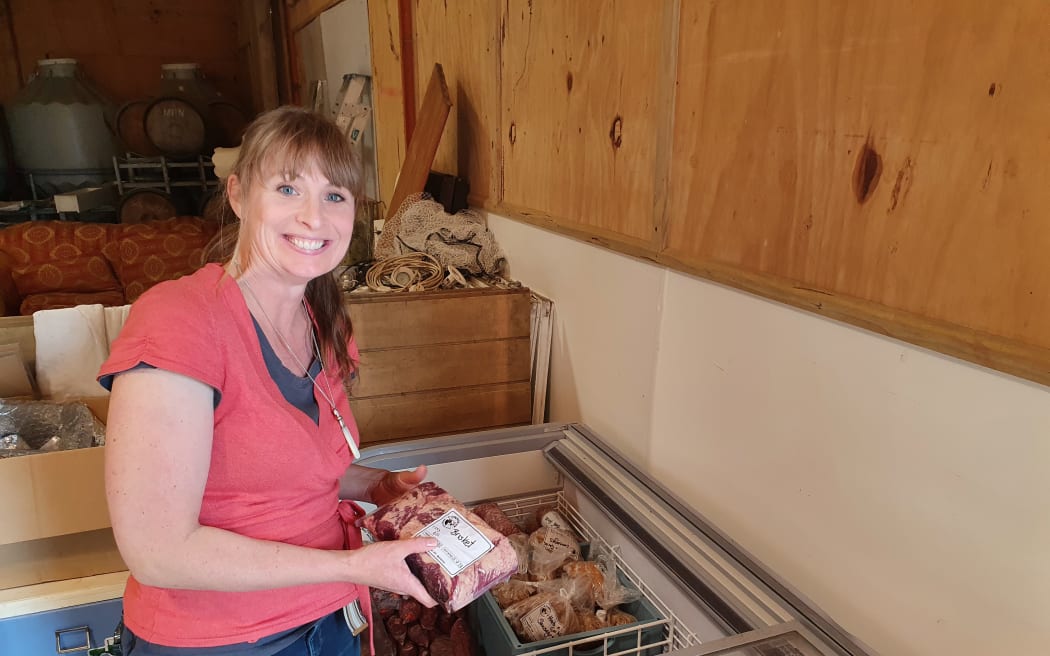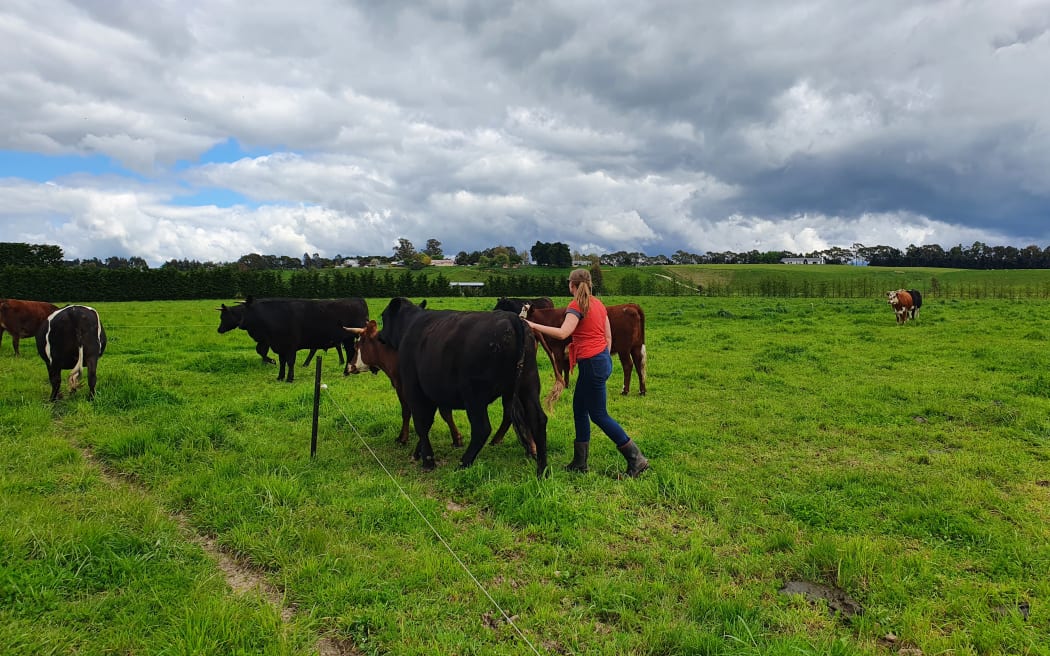Not many farmers get to meet all their customers face to face, but Claire Wells does.
The small-scale beef grower has started delivering the first of her subscription gate-to-plate meat boxes.
Getting to know her consumers and getting rid of the middleman is only part of her plan to honour the animals she carefully rears, some of them rescued off the bobby calf truck.
Wells has been on her husband's Gladstone family farm for 14 years. Now a mother of five, including twins, she grew up in Bristol, as a city girl.
"I became somewhat of an animal rights and eco-warrior when I was about 13 or 14 and drove my parents potty."
Feeding calves and children while slopping around in the mud and cow poo makes for very funny reading on her blog but there is still the warrior in her.
Wells has three herds of different age groups on a "patchwork" of paddocks on Wairarapa's fertile river terraces.
The cattle are grown longer and more slowly than in a conventional farming system and each month one cattle beast is slaughtered and about 100kg of meat is divvied up between the boxes destined for homes around Wairarapa and Wellington.
The animals can be up to four years old when they're killed, about double the standard age for turning beef cattle into meat.
It hasn't been plain sailing for Wells who started rearing bobby calves at the suggestion of her father-in-law in the early days on the farm.
"I don't think he expected me to go renegade like I have," she said with a laugh.
"It raised for me constant questions about everything - the environment, animal welfare, food security, food access. It didn't feel right to me to do it that way."

Claire sends out about 100kg of meat a month to A Complete Cow subscribers Photo: RNZ/Sally Round
One of the main premises for her business A Complete Cow is a micro abattoir on-site but that plan went awry during the pandemic.
She decided "imperfect action" was better than "perfect inaction" so leapt in any way and got things going with encouragement from other businesswomen.

Claire has joined several regenerative farming groups to learn how to improve pasture and build resilient soils Photo: RNZ/Sally Round
On-site slaughter will come in future in order to keep things as stress-free for the animals as possible and so she can have access to all the other bits and pieces.
The cheeks, the tallow, the tail, the horns - she eventually wants to have the whole cow used as productively as possible.
"Taking that one animal and trying to maximise the profit you make from that one animal ... so you don't have to have big herds and have that high turnover.
"It's that high turnover and that speed which is pushing the environment."
With a degree in fashion and textiles, Wells is also keen to have handbags and belts made from the hide.
She admits to being on a big learning curve on the farm and has joined several regenerative farming groups to learn how to improve pasture and build resilient soils to cope with Wairarapa's wet winters and very dry summers.
"The end goal is to be certified carbon neutral, possibly even positive and having everything done on-site ... so we're raising beef and adding to the environment instead of taking from it."


